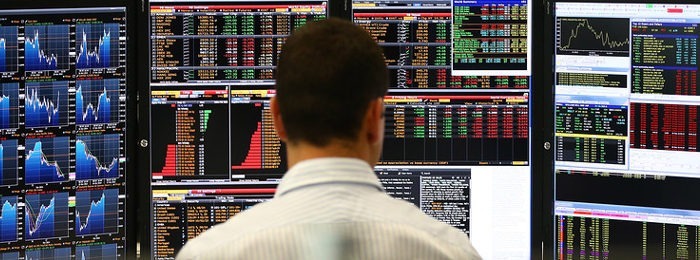
How to become Forex/CFD professional customer
The MiFID II and ESMA product intervention introduced several changed for retail customers and one of the most important and most “troubling” for traders is the restriction of the maximum leverage for CFD contracts. All of the above is aimed at protecting investors. However, what happens when the investor is aware of the risk and in spite thereof wants to use a higher leverage?
In such a case, the professional customer status is used, to which the restrictions introduced by the ESMA do not apply. All you have to do is to change your classification at the Forex/CFD broker.
Professional customer – advantages and disadvantages
Obtaining the professional customer status at the Forex broker allows avoiding the maximum leverage restriction. Therefore, depending on the broker, we receive access to a lot larger leverage, which can amount to even 500:1.
However, on the other hand, as a professional customer we lose the obligatory protection against the negative balance, which is provided for retail customers. It means that our trade becomes much more risky and we (especially with large leverage) are exposed to generating an overdraft on our investment account. It is worth remembering that some brokers offer protection against the negative balance also to professional customers.
How to become a professional customer
ESMA introduced specific principles, which must be fulfilled by each trader, regarding applying for the professional customer status. They apply to all brokers supervised by the ESMA, that is, operating in the territory of the European Union.
Two out of three criteria must be met:
- Concluding a transaction of a significant value, at least 10 times per quarter during four last quarters. A significant value is differently understood by various brokers and fluctuates between 40 and 50 thousand euro (we can achieve such value e.g. after concluding 10 transactions with a denomination of 0.4-0.5 lot on EUR/USD).
- Managing investment portfolio of a value of EUR 500.000 or higher.
- Working in the financial sector for at least a year at a position, which requires professional knowledge regarding transactions in the scope of financial instruments or brokerage services (to confirm skills a CV is sufficient).
How does it look like in practice?
- Concluding a transaction of a significant value, at least 10 times per quarter during four last quarters.
If you have an account at a given broker with reasonable turnovers and with a few/several month history, probably the broker will not ask for additional evidence confirming meeting the conditions, even if you do not fully achieve the turnover figures. However, when you trade at a given broker with microlots or small orders, you will have to present evidence in a form of a statement from other brokers. - Managing the investment portfolio of a value of EUR 500.000.
In this case, funds deposited at the broker are not crucial, but the total of assets held by you. These can be, for example: shares, cash, bonds or investment funds. However, the broker will not take into consideration “non-commercial” assets, such as real estate, cars or paintings.
In practice, if, while opening the account, you declared large earnings or savings and your deposit is sufficiently high, the broker will probably not require documents confirming the total amount of your assets. - Working in the financial sector for at least a year.
In this case brokers do not really have instruments to verify your declaration. They cannot verify if you did work in the company you have given and how long you were working there. If you are not 20 years old and you do not indicate a few years of experience in the industry, this condition will probably be met. Some brokers also count trading in the Forex market as relevant experience.
In order to apply for changing the classification to the professional customer, you have to simply log in the customer panel at your broker. The majority of them immediately display the survey to fill in. If you do not find such an option on your panel, contact the broker’s support.
Remember that
when you become a professional customer you increase the risk of losing capital
(higher leverage and a lack of protection against the negative balance),
therefore, you should decide to take this step, if you are really aware of this
risk.
An alternative solution – Brokers outside of the European Union
Some traders decided to circumvent the ESMA restrictions and use services provided by brokers operating outside of the EU. Before deciding to take this step, it is worth paying attention to several details.
- Proper jurisdiction
Avoid brokers registered in tax havens and small, suspicious jurisdictions. Pay attention to highly developed countries. - Weaker protection
While trading at a broker outside of the EU you have to remember that it will be much more difficult to enforce your rights, even if due to the distance. Moreover, some national funds protecting investors against the broker’s insolvency are constructed in such a manner that they do not protect traders from other jurisdictions.
One of the verified brokers not subject to the ESMA restrictions is the IC Markets from Australia.
We will be grateful for any information regarding practical procedure of changing the classification to a professional trader. It will help us to maintain this thread updated. Please send your opinions and experiences to contact@forexrev.org.
(Remeber that this text concerns traders from EU)























